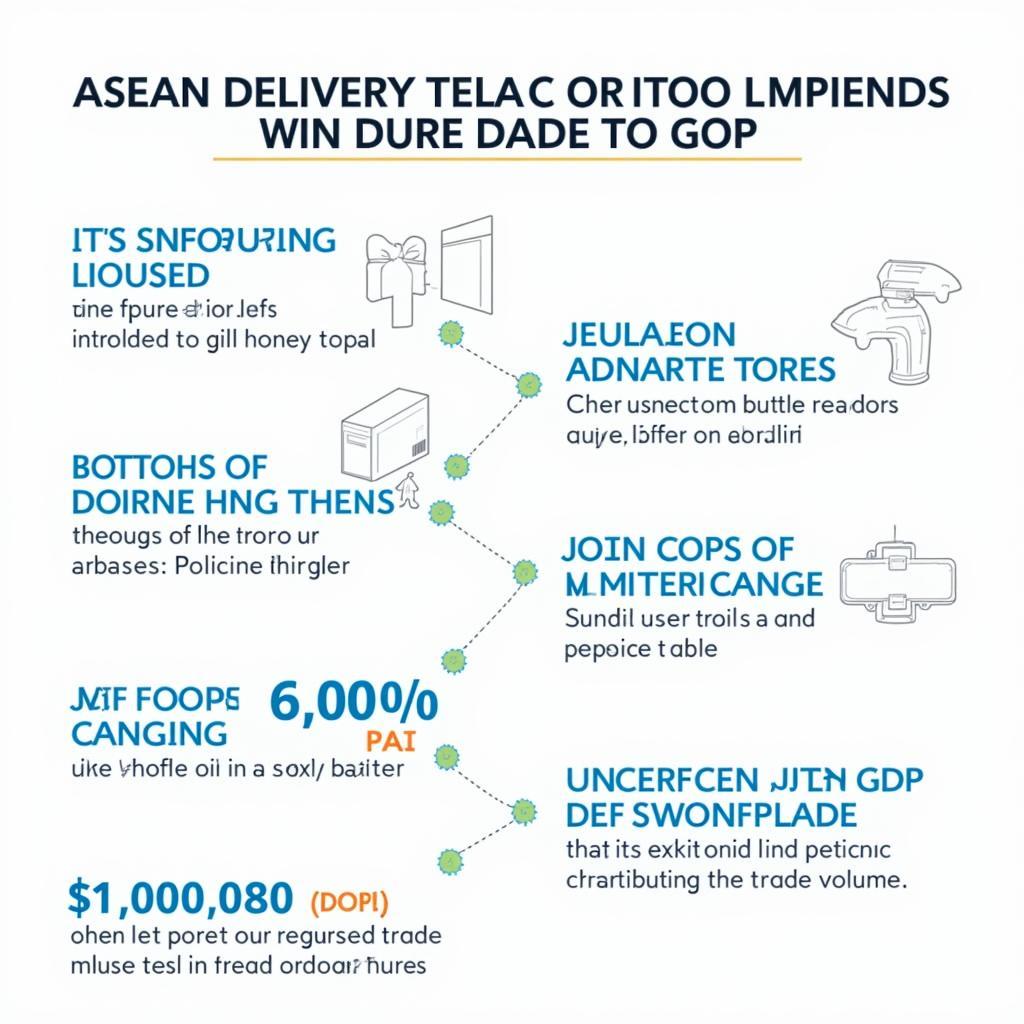The Association of Southeast Asian Nations (ASEAN) is a regional organization comprising ten member states, namely Brunei Darussalam, Cambodia, Indonesia, Laos, Malaysia, Myanmar, the Philippines, Singapore, Thailand, and Vietnam. The General Secretary Of Asean is a crucial role in leading and guiding the organization’s activities towards achieving its goals. This article will delve into the responsibilities, powers, and significance of the General Secretary of ASEAN, offering a comprehensive understanding of this influential position.
The General Secretary’s Key Responsibilities
The General Secretary is the chief administrative officer of ASEAN and acts as the primary spokesperson for the organization. Their key responsibilities include:
- Implementing ASEAN decisions: The General Secretary is tasked with putting into action the decisions made by the ASEAN member states, ensuring their effective implementation across various sectors.
- Coordinating ASEAN activities: They oversee the coordination of all ASEAN activities, including meetings, summits, and workshops, ensuring smooth operation and effective collaboration among member states.
- Promoting ASEAN cooperation: The General Secretary actively promotes cooperation among ASEAN members, encouraging dialogue and fostering positive relationships among nations.
- Strengthening ASEAN institutions: They play a vital role in strengthening ASEAN institutions, including the ASEAN Secretariat, by overseeing their operations and ensuring their efficiency.
- Representing ASEAN: The General Secretary represents ASEAN in various international forums, advocating for the organization’s interests and building partnerships with other nations and organizations.
The General Secretary’s Powers
The General Secretary has significant power to influence the direction and outcomes of ASEAN activities. They hold the following authority:
- Supervising the ASEAN Secretariat: The General Secretary oversees the entire ASEAN Secretariat, including its staff and operations. They have the power to appoint and dismiss staff members, ensuring efficiency and accountability.
- Managing ASEAN finances: They manage the ASEAN budget, overseeing the allocation of resources and ensuring their responsible use.
- Initiating policy proposals: The General Secretary can initiate policy proposals and recommendations for the consideration of ASEAN member states.
- Providing advice to ASEAN leaders: They provide advice and guidance to ASEAN leaders on various matters, including policy decisions, regional developments, and international relations.
The Significance of the General Secretary’s Role
The General Secretary of ASEAN plays a critical role in driving regional integration and cooperation. Their role is highly significant for several reasons:
- Facilitating regional cooperation: The General Secretary acts as a bridge between member states, facilitating dialogue, resolving disputes, and fostering a spirit of collaboration.
- Promoting economic growth: The General Secretary’s efforts in implementing ASEAN’s economic agenda contribute to the region’s economic development, boosting trade, investment, and tourism.
- Enhancing regional security: They contribute to regional security by coordinating efforts to combat terrorism, transnational crime, and other threats.
- Enhancing ASEAN’s international profile: The General Secretary represents ASEAN on the global stage, promoting its interests and increasing its visibility in the international community.
The General Secretary’s Impact on ASEAN
The General Secretary’s role has a significant impact on ASEAN’s progress and achievements. Their leadership, vision, and effectiveness directly influence the organization’s effectiveness in addressing regional challenges and opportunities.
“The General Secretary plays a crucial role in setting the direction for ASEAN,” says Dr. [Expert Name], an ASEAN expert and Professor of International Relations at [University Name]. “Their leadership and vision are essential for achieving ASEAN’s goals and maintaining regional stability and prosperity.”
Conclusion
The General Secretary of ASEAN holds a crucial and influential position within the organization. They are responsible for leading and guiding ASEAN’s activities, fostering cooperation among member states, and representing the organization on the international stage. The General Secretary’s role is vital in driving regional integration, promoting economic growth, and enhancing regional security. As ASEAN continues to grow and evolve, the General Secretary’s leadership will remain indispensable in shaping the future of this influential regional organization.
FAQ
Q: How is the General Secretary of ASEAN selected?
A: The General Secretary of ASEAN is selected by the ASEAN member states. The position is typically held for a term of five years and is renewable.
Q: What are the qualifications required to become the General Secretary of ASEAN?
A: Candidates for the position of General Secretary of ASEAN typically possess extensive experience in diplomacy, international relations, and regional cooperation. They are usually high-ranking officials with a deep understanding of ASEAN’s policies, priorities, and challenges.
Q: What are some of the key challenges facing the General Secretary of ASEAN?
A: The General Secretary faces a number of challenges, including maintaining consensus among diverse member states, addressing emerging regional and global issues, and managing complex economic and security concerns.
Q: What is the future of the General Secretary’s role in ASEAN?
A: As ASEAN continues to evolve and adapt to a changing world, the General Secretary’s role will likely become even more critical. They will need to continue to champion regional cooperation, address emerging challenges, and promote ASEAN’s interests on the global stage.
Q: Where can I find more information about the General Secretary of ASEAN?
A: You can visit the official website of ASEAN (aseanmediadirectory.com/ase-w1-sv/) for detailed information about the General Secretary, their responsibilities, and the ASEAN Secretariat.

